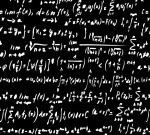Enrique Mota is a Mathematician and a founding member of GBU, the IFES Christian student movement in Spain. He’s also a founding member of the Spanish Christians in Science group, which is making great efforts to help people in Spain understand how science and faith can relate to each other. This is the third of four interviews from my recent trip to Spain. Mota is a mathematician who clearly feels called to work in his field to the best of his ability, and to encourage others to do likewise.
I work on operational research at the University of Valencia. My field is transportation and vehicle routing problems. I’ve been in the Department of Statistics and Operational Research for more than thirty years, and I enjoy my work there very much.
My parents were both Christians. My great-grandfather was the first person to be converted to the Protestant faith through a Baptist missionary who came to Valencia in the 1880s. When I went to university I thought I was a Christian, but towards the end of my studies I went to a GBU conference where I heard Vinoth Ramachandra, a Sri Lankan staff worker from IFES, speak. He talked about the game of marbles. Sometimes we try to play with God, but we cheat and hide some marbles in our pockets. He said that we should give everything to God, and he was right.
Up to that point I had made a compromise with God. Spiritual things and the difficult challenges that I could not tackle were for God, but decisions about my career, my future wife, and other things that were important to me – that was my job and I knew how to do it. Ramachandra’s point was that you have to give every marble that you have to God, and then it works perfectly. By then I was in my final year of university, and all my plans had been destroyed. I had to accept that I had failed at my job. I had to say to God, ‘Do what you want with me.’ And he did. I finished my studies in July, and in September I began my new job at the University. That sequence of events was a sign that I attribute to God, because by this time I was ready to accept whatever solution he presented. The doors were opened, and I entered.
I have always been linked with the Spanish Christian student movement. I was a member as a student, and when the first committee of student leaders was set up Pablo Martinez (a colleague of Raul Garcia the psychiatrist interviewed in an earlier post) was the president, and I was the secretary. I stayed in that post until my son joined GBU as a student, and I am now on the national council.
As part of my role at GBU I help to run a sub-group that supports scientists and encourages them to serve God with their work. What we call modern science came along at just the right moment. According to the historian Reijer Hooykas, the protestant movement gave people the desire to search for God in nature and that, basically, is science. So since the beginning science and faith have been together. Obviously sometimes there has been a conflict, but the overall history is one of working together.
An image that we sometimes get from the evangelical point of view is that if you want to serve God you should be a pastor. If you are not a pastor you can be a missionary, a doctor or a teacher. But there is no aspect of culture that is outside the grace of God. We need to be able to offer a perspective of God in every area, including mathematics. So when people ask me, ‘Why are you a mathematician?’ I respond that I like it and I think that I can do something useful through my work.
I think there is no ‘Christian mathematics’. There are good mathematicians or bad mathematicians, but there is no other distinction. There are some mathematicians who are also Christians, and who see their work as an act of service to God; I think that is totally acceptable. We should try to support these people.





